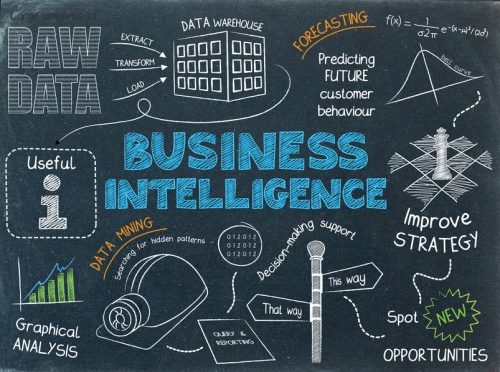Business Intelligence
Business Intelligence (BI) can be defined as a strategy that uses information technology to improve business competitiveness. Business Intelligence is often taught in Information System Management program. It focuses on the policies, standards, technology, and processes required allowing a company to get the information needed to support its business strategies and to improve competitive advantage.
There are many ways of applying business intelligence. For example, when you buy a product on line, the company collects information about your purchasing habit and made suggestion for you to buy another product. If you decide to buy additional thing as they suggested, it increases their sales and profits. Amazon is the most successful company in using BI to their advantage.
When you have a bank account, the bank knows all about your financial history as well as your spending habit. When you apply for a loan, your application is approved or rejected automatically based on these information. This is another example of BI as it helps the bank make decision quickly.
Manufacturing companies collect information about workers in their assembly lines to determine who is better, who has higher productivity and who often make mistake. These performance indicators are used to evaluate workers for promotion as BI software compiles performance data and organizes them into a report to management. The BI software can also predict what problems that they may encounter based on past data.
Today BI is often used in market analysis to collect information about consumer’s perception of a company and its product as well as their opinion about its competitor’s products. BI is used to collect information from regular customers and their feed-back on company’s products. BI can also help company to do technology upgrade by tracking information about the technological advancements so the company’s products do not become obsolete.
BI software collects information from multiple sources; the data are verified, edited, categorized, analyzed and presented to the company management to make decisions. Based on this information, company can revise its policies, plan for future developments, develop new products if there is market demand and work towards greater efficiency leading to increased productivity. BI can also help companies to understand their customers’ needs better, and make better marketing decisions.
Sources
- Blogs of Prof. John Vu, Carnegie Mellon University
